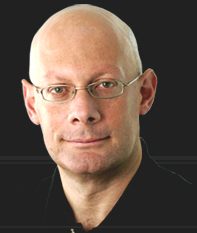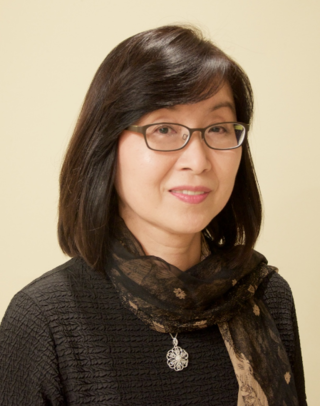Related Research Articles
Clyde Lee Giles is an American computer scientist and the David Reese Professor at the Penn State College of Information Sciences and Technology (IST) at the Pennsylvania State University. He is also Graduate Faculty Professor of Computer Science and Engineering, Courtesy Professor of Supply Chain and Information Systems, and Director of the Intelligent Systems Research Laboratory. He was Interim Associate Dean of Research in the College of IST. He graduated from Oakhaven High School in Memphis, Tennessee. His graduate degrees are from the University of Michigan and the University of Arizona and his undergraduate degrees are from Rhodes College and the University of Tennessee. His PhD is in optical sciences with advisor Harrison H. Barrett. His academic genealogy includes two Nobel laureates, Arnold Sommerfeld and prominent mathematicians.
Vasant G. Honavar is an Indian-American computer scientist, and artificial intelligence, machine learning, big data, data science, causal inference, knowledge representation, bioinformatics and health informatics researcher and professor.

Tomasz Imieliński is a Polish-American computer scientist, most known in the areas of data mining, mobile computing, data extraction, and search engine technology. He is currently a professor of computer science at Rutgers University in New Jersey, United States.
Jie Tang is a full-time professor at the Department of Computer Science of Tsinghua University. He received a PhD in computer science from the same university in 2006. He is known for building the academic social network search system AMiner, which was launched in March 2006 and now has attracted 2,766,356 independent IP accesses from 220 countries. His research interests include social networks and data mining.

Usama M. Fayyad is an American-Jordanian data scientist and co-founder of KDD conferences and ACM SIGKDD association for Knowledge Discovery and Data Mining. He is a speaker on Business Analytics, Data Mining, Data Science, and Big Data. He recently left his role as the Chief Data Officer at Barclays Bank.
Philip S. Yu is an American computer scientist and professor of information technology at the University of Illinois at Chicago. He is a prolific author, holds over 300 patents, and is known for his work in the field of data mining.
Social media mining is the process of obtaining data from user-generated content on social media in order to extract actionable patterns, form conclusions about users, and act upon the information. Mining supports targeting advertising to users or academic research. The term is an analogy to the process of mining for minerals. Mining companies sift through raw ore to find the valuable minerals; likewise, social media mining sifts through social media data in order to discern patterns and trends about matters such as social media usage, online behaviour, content sharing, connections between individuals, buying behaviour. These patterns and trends are of interest to companies, governments and not-for-profit organizations, as such organizations can use the analyses for tasks such as design strategies, introduce programs, products, processes or services.
Bing Liu is a Chinese-American professor of computer science who specializes in data mining, machine learning, and natural language processing. In 2002, he became a scholar at University of Illinois at Chicago. He holds a PhD from the University of Edinburgh (1988). His PhD advisors were Austin Tate and Kenneth Williamson Currie, and his PhD thesis was titled Reinforcement Planning for Resource Allocation and Constraint Satisfaction.
Henry A. Kautz is a computer scientist, Founding Director of Institute for Data Science and Professor at University of Rochester. He is interested in knowledge representation, artificial intelligence, data science and pervasive computing.

Haesun Park is a professor and chair of Computational Science and Engineering at the Georgia Institute of Technology. She is an IEEE Fellow, ACM Fellow, and Society for Industrial and Applied Mathematics Fellow. Park's main areas of research are Numerical Algorithms, Data Analysis, Visual Analytics and Parallel Computing. She has co-authored over 100 articles in peer-reviewed journals and conferences.
Zhou Zhihua is a Chinese computer scientist and Professor of Computer Science at Nanjing University. He is the Standing Deputy Director of the National Key Laboratory for Novel Software Technology, and Founding Director of the LAMDA Group. His research interests include artificial intelligence, machine learning and data mining.
Jianchang (JC) Mao is a Chinese-American computer scientist and Vice President, Google Assistant Engineering at Google. His research spans artificial intelligence, machine learning, computational advertising, data mining, and information retrieval. He was named a Fellow of the Institute of Electrical and Electronics Engineers (IEEE) in 2012 for his contributions to pattern recognition, search, content analysis, and computational advertising.
Latifur Khan joined the University of Texas at Dallas in 2000, where he has been conducting research and teaching as a Professor in the Department of Computer Science.
Yolanda Gil is a Spanish computer scientist specializing in knowledge discovery and knowledge-based systems at the University of Southern California (USC). She served as chair of SIGAI the Association for Computing Machinery (ACM) Special Interest Group (SIG) on Artificial Intelligence, and the president of the Association for the Advancement of Artificial Intelligence (AAAI).
Jiebo Luo is a Chinese-American computer scientist, the Albert Arendt Hopeman Professor of Engineering and Professor of Computer Science at the University of Rochester. He is interested in artificial intelligence, data science and computer vision.

Hui Xiong is a data scientist. He is a distinguished professor at Rutgers University and a distinguished guest professor at the University of Science and Technology of China (USTC).
Jiliang Tang is a Chinese-born computer scientist and associate professor at Michigan State University in the Computer Science and Engineering Department, where he is the director of the Data Science and Engineering (DSE) Lab. His research expertise is in data mining and machine learning.
Yixin Chen is a computer scientist, academic, and author. He is a professor of computer science and engineering at Washington University in St. Louis.

Nitesh V. Chawla is a computer scientist and data scientist currently serving as the Frank M. Freimann Professor of Computer Science and Engineering at the University of Notre Dame. He is the Founding Director of the Lucy Family Institute for Data & Society. Chawla's research expertise lies in machine learning, data science, and network science. He is also the co-founder of Aunalytics, a data science software and cloud computing company. Chawla is a Fellow of the American Association for the Advancement of Sciences (AAAS), Association for Computing Machinery (ACM), a Fellow of the Association for the Advancement of Artificial Intelligence, a Fellow of the Asia Pacific Artificial Intelligence Association, and a Fellow of the Institute of Electrical and Electronics Engineers (IEEE). He has received multiple awards, including the 1st Source Bank Commercialization Award in 2017, Outstanding Teaching Award (twice), IEEE CIS Early Career Award, National Academy of Engineering New Faculty Award, and the IBM Big Data Award in 2013. One of Chawla's most recognized publications, with a citation count of over 25,000, is the research paper titled "SMOTE: Synthetic Minority Over-sampling Technique." Chawla's research has garnered a citation count of over 62,000 and an H-index of 80.
Kai Shu is a computer scientist, academic, and author. He is a Gladwin Development Chair Assistant Professor at the Illinois Institute of Technology.
References
- ↑ "Liu, Huan, 1958-". Library of Congress. Archived from the original on 2024-06-01. Retrieved 2024-06-01.
- ↑ "Huan Liu". Arizona State University. Archived from the original on 2024-06-01. Retrieved 2023-12-11.
- ↑ "Huan Liu, Professor". Arizona State University. Retrieved 5 October 2021.
- ↑ "2012 elevated fellow" (PDF). IEEE Fellows Directory.
- ↑ 2018 ACM Fellows Honored for Pivotal Achievements that Underpin the Digital Age, Association for Computing Machinery, December 5, 2018
- ↑ "Elected AAAI Fellows". AAAI. Retrieved 2024-01-05.
- ↑ Regents Professors, Arizona State University, January 23, 2023
- 1 2 3 4 5 Huan Liu publications indexed by Google Scholar